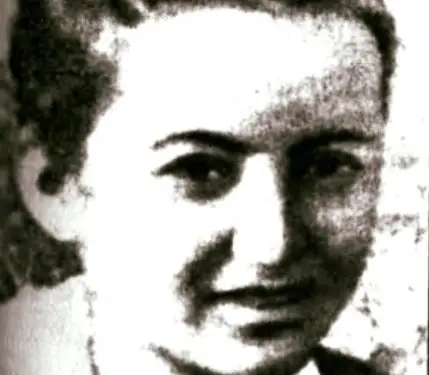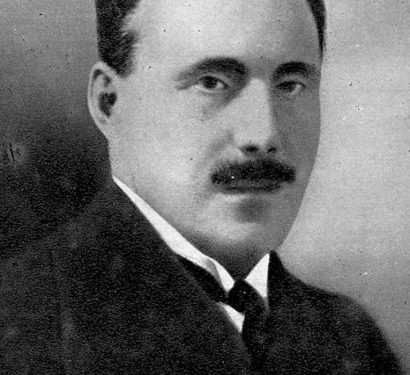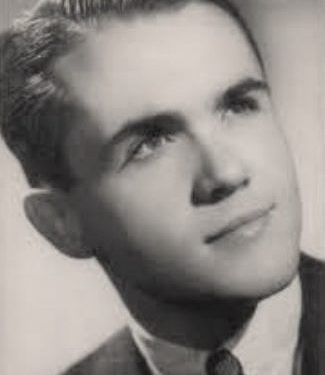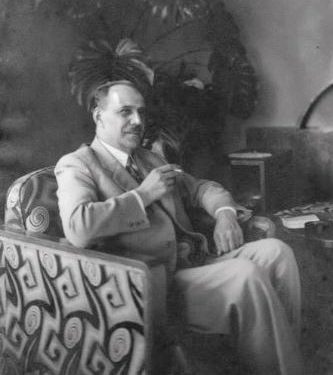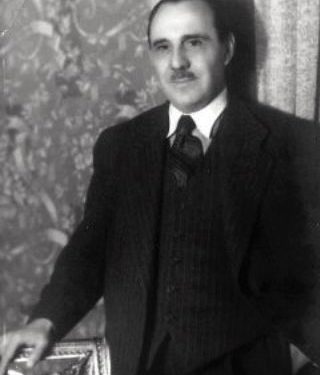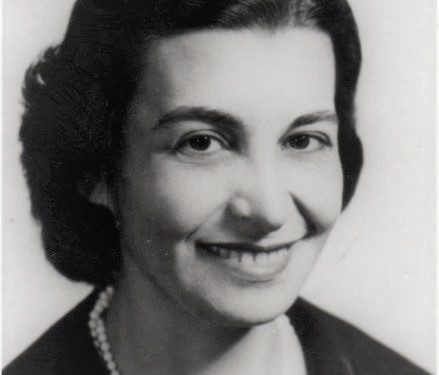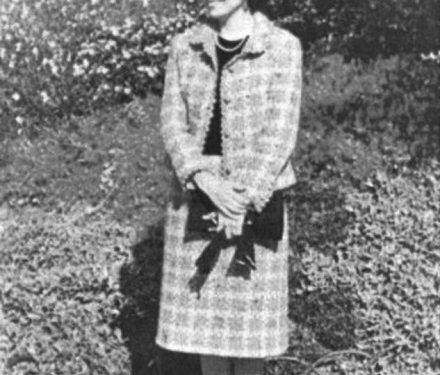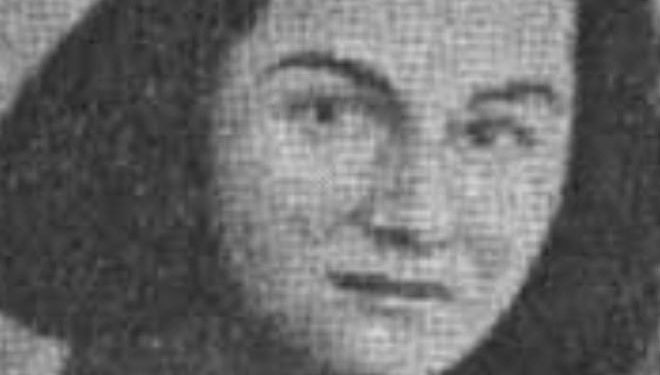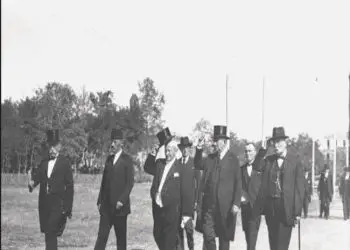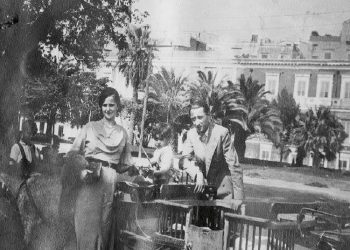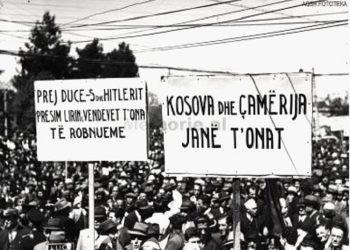By Anila Dushi
Memorie.al / Land owners, silk processors and merchants, members of the Juka family, also contributed financially to the fight against fascism. However, after 1944, the communist punishment would fall on this family even though it had given a daughter in the fight against fascism and was declared a heroine. Their properties are taken and they are imprisoned and persecuted. The Juka family is one of the most popular families in Shkodër, although for many reasons its members are scattered in Albania and abroad. Honorable names of this family have left their mark on the history of the Albanian nation, inside and outside of it, making them mentioned with respect not only by the people of Shkodran.
Intellectualism and love for the homeland, pride for being Albanian, seem to have characterized the most popular figures of this family. Zamir Juka is one of the members of this family who continues to live in Shkodër.
Speaking about his family, referring to what his ancestors have told him, what is written or the materials collected by his cousin, Gëzim Juka, who is in the process of writing a book about the history of this family, Zamir Juka says that his family came to Shkodër from the area of Dukagjin, the village of Pecaj after 1600.
The first of the tribe was Pal Juca, of the Catholic faith, and then the members of this family became Muslims, where the last name Juca turned into Juka. This is said to have happened at the time of the flight of Venice and the repopulation of the areas around the Shkodra fortress.
The history of the Yuka family
The people of the Juka family settled in Shkodër in the “Parruca” neighborhood and were known as big owners where, in addition to the properties, they had also built the Parruca mosque, which was demolished by communism in 1967, and which was considered one of the mosques most beautiful and popular throughout the country.
This family, in addition to the lands, was also the owner of two hotels, and it is even thought that the “Parrucë” neighborhood got this name, from the first of this tribe, Pal Juka. After the Turkish invasion, members of the Juka family were active in the political life of the city.
Tahir Agë Juka, was the leader of the Tabake group. Nelo Juka, (Zenel Agë Juka) was active in the war of Miletus, developed by the forces of the Albanian League of Prizren, its financial contributor and one of the signatories of the protest of the Parish of Shkodra, on June 16, 1878, against the fragmentation of Albania. The history of this family continues with the contributions of its other members, in the political and administrative life of Shkodra and Albania, especially after 1912.
In addition to the figure of Musa Juka, there are other members of this family who have distinguished themselves in political and social life by giving their contributions as patriots, such as: Hamza Juka, member of the Municipal Council in Shkodër, Man Juka and Asllan Juka, members in the Koplik War, against the Serbs in 1920.
The descendant of this family, Zamir Juka, shows that, despite the Zogist convictions, his family lined up in the fight against fascism and expressed clear anti-fascist features, and he is proud of that.
Even Musa Juka, who was number 2 of the Albanian state before the Italian invasion, based on the official documents of the time, was against the Italian invasion. So on April 6, 1939, he would transmit a letter, by order of King Zog, for armed resistance against fascism, which is also known from this document that we are quoting here about Musa Juka.
Archival document about Musa Juka, who opposes the fascist occupation of the country, on April 7, 1939
Concept: Albanian Kingdom
Tirana on 6-4-1939
Ministry of P. Interior
Secret Office No. extras
Colonel Ali Riza, Vlona
As Nalt Madhnis commanded His Majesty the King:
We inform you that, in the event that the Italian troops begin to land on our land, your armed struggle will immediately begin. Stop. The two battalions were stationed in Tepelena and one in Berat, were ordered to leave for Vla and were placed under the command of Mr. s’Uej, for the defense of the homeland. Stop. The minister.
Internment of the family after the fascist occupation
The fascist occupation would have consequences for this family where some of its members were imprisoned and exiled. Thus, Hilmi Juka is interned in Gjirokastra for 1 year, Galip Juka is interned in Pesaro, Italy for 2 years, Xhemal Juka is interned in Perugia for 1 year, Elez Juka is interned in Zvrnec Vlorë and in Italy for 3 years, Ali Juka is interned in Ventotene, Italy For 3 years, Myfit Juka was imprisoned in Shkodër and interned in the Nazi camp in Pristina, in September 1944. Meanwhile, Shaban Juka became active with the student movement against the invaders of the country.
Shejnazja, the Shkodra juvenile partisan
In this period, the anti-fascist activity of another figure of this family, Shejnaze Jukës, stands out. While she was studying in Italy, she returned to Albania and actively lined up in the anti-fascist and partisan formations, from its beginnings, together with her maternal cousin, Qemal Stafa.
Due to her anti-fascist activity, she was expelled from school in Albania and since she was wanted by the fascists, she went to the mountains as a partisan. Shejnaze Juka, was killed fighting with the fascists in the area of Čermenika in December 1943, and after the liberation, he was given the high title, “Hero of the People”. For years, the former Pedagogical school, today the Foreign Language High School, in the city of Shkodra, has been bearing her name for years, in the yard of which the bust of Shejnaze is located.
Punishment after liberation
Land owners, silk processors and merchants, members of the Juka family, also contributed financially to the fight against fascism. However, after 1944, the communist punishment would fall on this family even though many of its members had engaged in the Anti-Fascist Movement during the Lufa period or had joined the partisan forces, such as Shejnaze Juka, who had given her life in the fight against fascism.
So when the communists came to power, at the beginning of 1945, the Juka tribe’s properties were taken away and they were imprisoned and persecuted. Xhemal Juka, dies in torture in the interrogator along with Qemal Dračini and their graves are still unknown. Hilmi Juka and Nuh Juka, are politically imprisoned. Intellectuals from this family educated abroad, such as Galip and Zyber Juka, are sent to work in other areas of the country, such as Myzeqeja, Rresheni or Maliqi.
The education of the sons of this family goes in parallel with its patriotism, where the part that is abroad, such as Musa Juka’s family, not only gets an education, but because they did not communicate with others in Albania, they do not forget their homeland.
Musa Juka, minister, deputy and mayor of Shkodra…!
Musa Zyber Juka (1885-1955) stands out among the most famous people in this great Shkodra family. Educated at college in Istanbul, in the years 1921-1924, Musa Juka takes an active part in the Albanian politics of that time, aligning himself with Ahmet Zogut.
For his patriotic contribution, he was elected mayor of Shkodër for two terms. In 1917, he was a member of the Albanian delegation in Vienna, at the coronation ceremony of Charles the First. At the beginning of December 1924, he was appointed deputy prefect of Shkodra and on March 1, 1926, he was elected deputy.
In the government cabinets headed by Ahmet Zogut, Musa Juka, served as Minister of World Affairs and Agriculture and then as Deputy Minister of the Interior. In 1928, he is the Minister of Agriculture and Forestry.
In 1929, he was the Minister of National Economy and in the Constitutional Assembly of 1928 he was in the group of assemblymen of Shkodra, who proclaimed the Albanian Monarchy, with King Ahmet Zogu and in the Parliament, until 1932 he was the deputy of Shkodra.
In the Pandeli Evangjeli government from March 6, 1930 to April 11, 1931, Musa Juka was the Minister of Internal Affairs, a task he continued to perform in the years 1932-1939, while during this period he was also the Deputy Minister of National Economy.
Similarly, Musa Juka is the deputy of Shkodra in the parliament of the years 1932-1936, as well as in the Parliament resulting from the elections of January 1937 – April 7, 1939, the day when Albania was invaded by fascist Italy and he left Albania.
During the years 1935-1937, Musa Juka was also the head of the National Tourism Organization. With the creation of the Albanian Sports Federation in June 1932, he was elected its chairman.
He was decorated by the Emperor of Austria-Hungary at the time of the First World War, when he was Mayor of Shkodra and according to the newspaper “Posta e Shqypnies” by Gjergj Fishta (in No. 28 March 1917), to which the descendants refer of the Juka family, Musa Juka, received the “Cross of Kreshniks of the Order of Franz Joseph”.
With such a decoration, together with Musa Juka, Ndre Mjeda, Father Pal Çurçia, Father Joakin Serreqi, Father Pal Doda, Luigj Gurakuqi, Ahmet Bej Zogolli, Father Shtjefën Gjeçovi, etc., who supported Austria, were also honored.
Safete Juka, the well-known Albanian researcher
Safete (Sofija) Juka, the daughter of Musa Juka, is undoubtedly another valuable figure of this family. Intellectual, trained in the most popular schools, starting with primary school in Tirana, secondary school in Austria and university in France, in the years 1950-1956, she serves as a professor at the French Lyceum of Alexandria, Egypt.
There, as she was passionate about art, she opened two painting exhibitions and was called the “painter of flowers”.
In 1957, a year after the death in Alexandria, Egypt of her father, Musa Yuka, the family moved to New York, USA. There he teaches in a private school in French and German. During this time, he defended his doctorate in France (in 1969) and after that, he served at the University of Pennsylvania as a professor of French literature of the 19th and 20th centuries, where he also retired.
During this period of time, she participated in many seminars and conferences on the philosophical problems of French art and literature in the USA. Painter, researcher, art critic, essayist, analyst of culture in general and French art in particular, Safete Juka, collaborates with the magazines: “The French Review”, “Revue de Mitaphysique ed morale”, “Les Lettres Romanes”, “Ecrits de Paris”, “Realites”, La Nouvelle”, “Revue Francaise”, “South Asian Review”.
Its main problem was the Albanian issue and especially Kosovo. She sends her book “Kosova – The Albanians in Yugoslavia in light of Historical Document” as a gift to the president, Bill Clinton, secretary Bob Doll and many offices. Her book “Golgotha” occupies an important place.
Labeled as the second Dora D’Istria, Safete Juka, has been nominated for the “Honour of the Nation” award. Safete Sofija Juka (that was her name in the USA) after the 1990s, came to Albania and participated in the seminar “Shkodra in the centuries” in 1993, with the work “Shkodra in the works of Mary Edith Durham” . Safete Juka died in November 2005 and, according to her will, is buried in Shkodër.
$40,000 gift to the National Library
Another indicator of Safete Juka’s patriotism and patriotism, even though she left Albania when she was only 13 years old, is the gift of 40,000 dollars that she left to the Albanian National Library after her death.
This bequest was completed by her sister Lume Juka, a nun of the “Order of Mother Teresa”, who wrote on June 19, 2009, from New York, to the director of the National Library in Tirana, Mr. Aurel Plasari.
Among other things, she informs them that; her sister Safetja, deposited in a New York bank, an amount of 40,000 dollars, which according to her will, would be donated to the National Library.
Lumnije Juka, Safete’s sister, has both a charitable and a patriotic activity in New York, where in 1969, she becomes the initiator and enabler of the first meeting of Mother Teresa with Queen Geraldine.
Other members of Musa Juka’s family were educated at world-renowned universities, such as Berhani Juka for Law at the Sorbonne, while Fiqireti, for French Literature, in Strasbourg and at the University of Georgia, USA, for Political Science.
Although he left Albania at a young age, Zamir Juka says that he had a desire to come to Albania and if that was not possible, according to his will, Fiqeret Juka, after his death in 1992, was buried in Shkodër.
Two sides of the coin
The opposite happened for the members of this family who lived in Albania, who until 1990 had few opportunities for education. Zamir Juka, who was deprived of high school for political reasons, remembers what his father told him when he received the news of Musa Juka’s death in Egypt.
“It was not allowed to issue a notice and expect condolences, especially since Musa Juka was labeled by the communists as an ‘enemy of the people’. In these conditions, friends and relatives who found out secretly came for consolation at home, at different times and carefully so that they would not be dictated to and the punishment would fall on them. The communists did not allow even the dead to be respected. I remember that my father secretly listened to foreign stations and always ordered us not to say what was being said or heard at home,” recalls Zamir Juka.
Meanwhile, the well-known figure of this family is Xelal Juka, a well-known football player and coach. Although he stood out as a football talent, he played 10 international football matches with the “Vllaznia” team and the national team, but all within the country, as he was not allowed to go abroad, even to play football, as part of the teams where he was in formation.
Jelal Juka, is “Honored Master of Sports”; holder of the First Class “Naim Frashëri” Order, 1999; the title “Palok Nika” given by the Municipality of Shkodra 2000, “Gratitude of the City of Shkodra” 2009. After 1990, members of this family continue to contribute in various fields and get educated abroad.
Genc Juka was a member of parliament in the years 1992-1996 and 2005-2009, while Amer Juka graduated with high results in Law at Panthéon-Assas University – successor of the famous ‘Faculté de Droit de Paris’, in France.
In the organized ceremony, Armer Juka was honored with the “Major” award, as an excellent student who was ranked first at the end of his master’s studies, in the branch of European Business Law.
This award was given to him in 2009 by Eric Woerth, Minister of Budget and Public Accounts, Public Servants and State Reform in France, while other French personalities were also present, such as: Vincent Lamanda, President of the Court of the Supreme Court, Jean-Pierre Lecoq, deputy and mayor of the mini-municipality, Louis Vogel, President of the University, Patrick Gérard, Rector of the Paris Academy./Memorie.al




